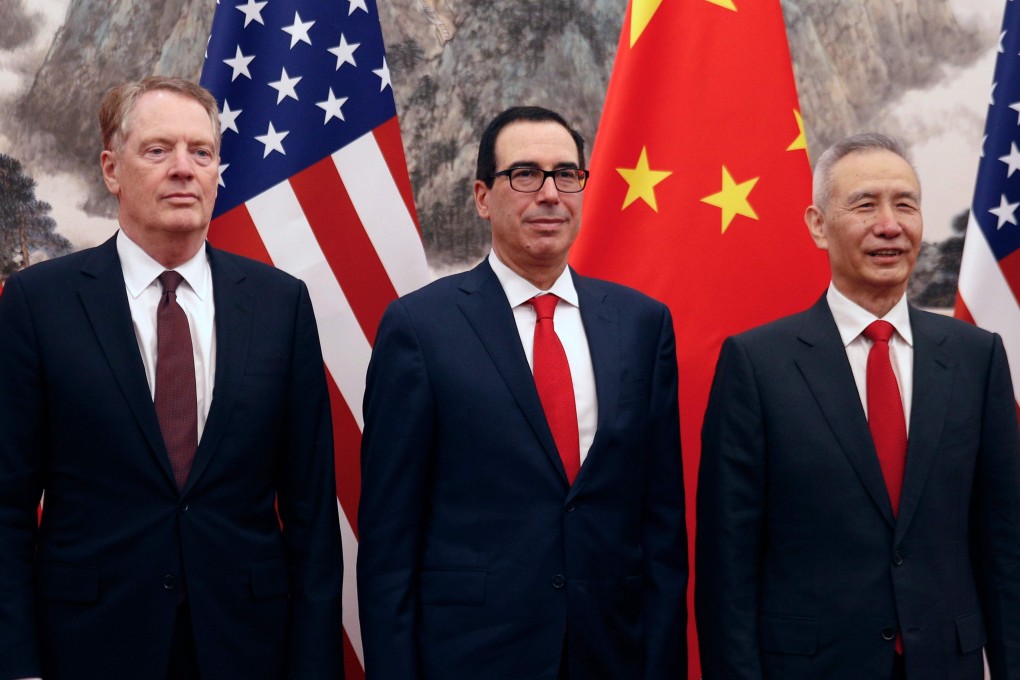‘Productive’ end to latest round of US-China trade talks
- US Treasury Secretary Steven Mnuchin says ‘it’s good to be back here’
- Outlook for a May deal looks positive, as US drops a key demand

The latest round of trade negotiations between China and the United States concluded on Wednesday, with US Treasury Secretary Steven Mnuchin describing the talks as productive.
In a tweet, Mnuchin said he and US Trade Representative Robert Lighthizer had concluded “productive meetings” with Chinese Vice-Premier Liu He.
“We will continue our talks in Washington next week,” Mnuchin said.
A statement from White House press secretary Sarah Sanders on Wednesday did not indicate what, if any, consensus had been reached during the talks in Beijing. It said that discussions remained “focused toward making substantial progress on important structural issues and rebalancing the US-China trade relationship.”
The talks had opened in the Chinese capital on Wednesday with smiles and pleasantries between the top negotiators.